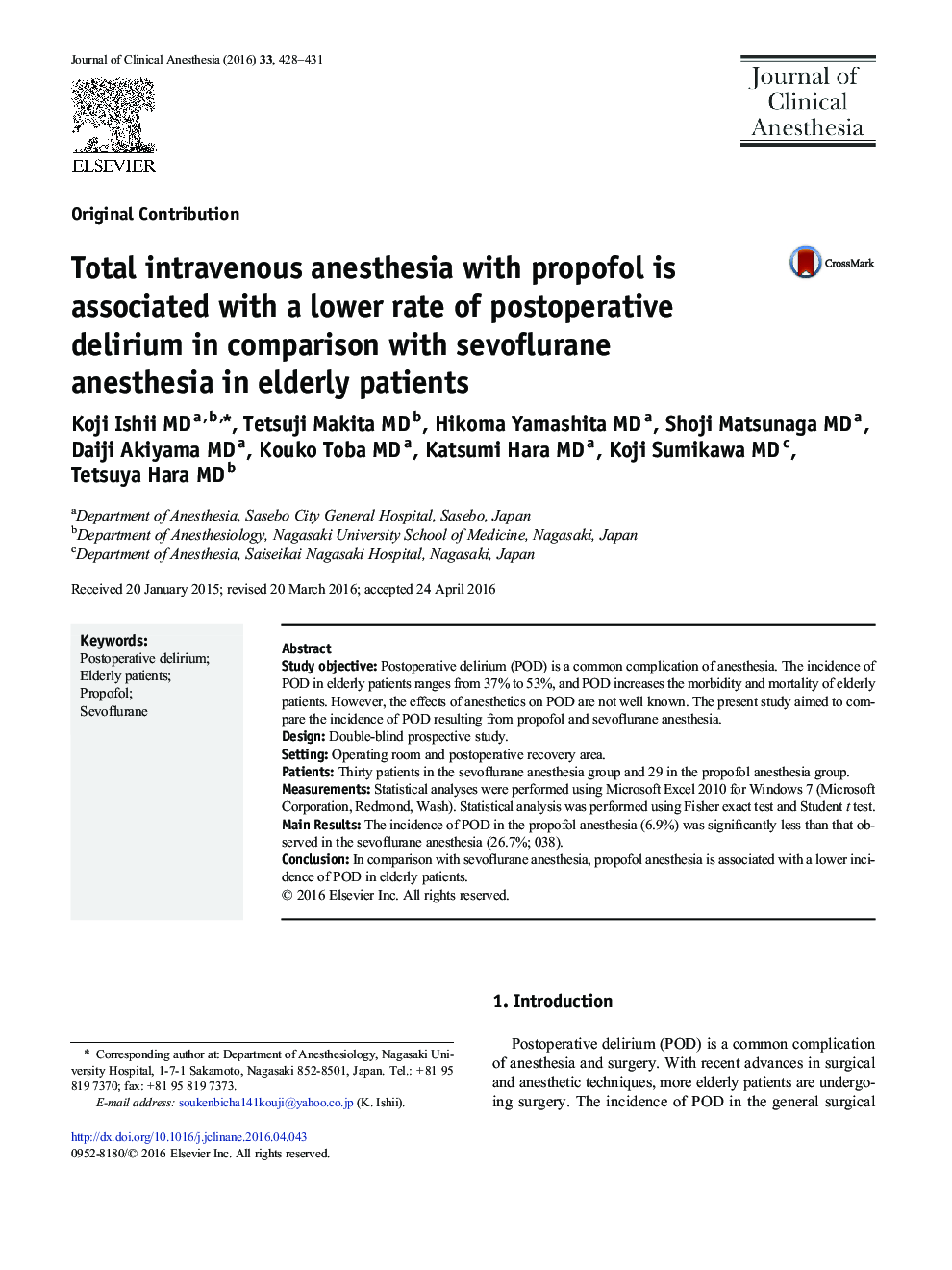| Article ID | Journal | Published Year | Pages | File Type |
|---|---|---|---|---|
| 2762132 | Journal of Clinical Anesthesia | 2016 | 4 Pages |
•Postoperative delirium (POD) the morbidity and mortality in elderly patients. We carried out double-blind prospective study to compare propofol with sevoflurane on the incidence of POD. There were no significant differences in age, sex, operation time, anesthesia time, bleeding volume, transfusion volume, and total dose of fentanyl between 2 patient groups. Propofol anesthesia decreases POD in elderly patients compared with sevoflurane anesthesia.
Study objectivePostoperative delirium (POD) is a common complication of anesthesia. The incidence of POD in elderly patients ranges from 37% to 53%, and POD increases the morbidity and mortality of elderly patients. However, the effects of anesthetics on POD are not well known. The present study aimed to compare the incidence of POD resulting from propofol and sevoflurane anesthesia.DesignDouble-blind prospective study.SettingOperating room and postoperative recovery area.PatientsThirty patients in the sevoflurane anesthesia group and 29 in the propofol anesthesia group.MeasurementsStatistical analyses were performed using Microsoft Excel 2010 for Windows 7 (Microsoft Corporation, Redmond, Wash). Statistical analysis was performed using Fisher exact test and Student t test.Main ResultsThe incidence of POD in the propofol anesthesia (6.9%) was significantly less than that observed in the sevoflurane anesthesia (26.7%; 038).ConclusionIn comparison with sevoflurane anesthesia, propofol anesthesia is associated with a lower incidence of POD in elderly patients.
